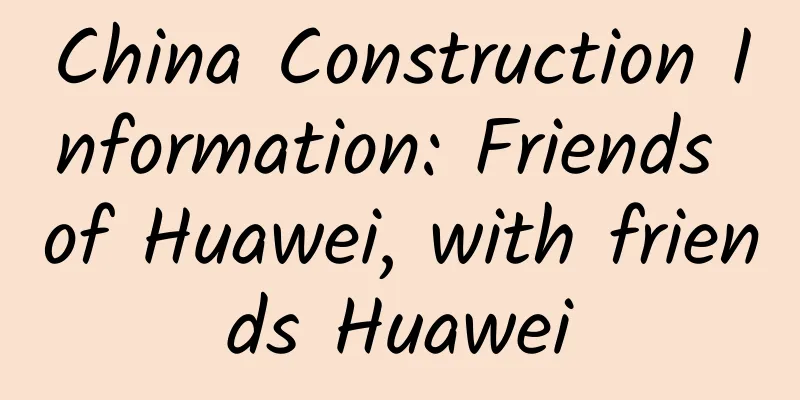Network construction cannot be completed overnight: VoLTE is the bright future for operators

|
Recently, a portal website published an article pointing out that in the VoLTE network test, it is indeed possible to surf the Internet during a call, but the web browsing speed is slow and it is almost impossible to open a video, "just like going back to the 3G era." The website said that the outside world has also been criticizing VoLTE, believing that it is a useless service for operators. Competition in the communications sector is fierce, and the deployment of new technologies and new services is always subject to scrutiny by the industry, especially revolutionary technologies such as VoLTE, which are rightly discussed and questioned. However, when VoLTE was first put into commercial use, it was criticized for "poor quality of VoLTE services" and industry insiders said that "VoLTE was not driven by market user demand", giving it a "10,000-point critical hit". Is this unfair to the operators? Global operators will gradually commercialize The website said that an industry insider pointed out that China Mobile promoted VoLTE because the fallback from 4G to 2G connection is too slow, and the cost of dual-network dual-standby terminals is high, resulting in high costs for building and maintaining 2G\4G networks. Therefore, China Mobile had to promote VoLTE, and it was not due to market user demand. This view is worth discussing. First of all, China Mobile is not the only operator promoting VoLTE. China Unicom and China Telecom also regard VoLTE as an important network construction goal. From a global perspective, GSMA data shows that as of mid-2016, more than 70 operators in the world have deployed VoLTE networks, and in some countries, the operator terminals and business ecosystems are already relatively mature. These operators are not "pushing VoLTE out of necessity." Secondly, in the context of mobile operators working to provide faster and faster Internet access and improve network capacity, 4G networks replacing 2G/3G networks is a major trend. Craig Skinner, senior analyst at Ovum Consumer Services, pointed out that without VoLTE, operators would have to continue to invest in existing 2G/3G networks to support voice and SMS services. By deploying VoLTE, operators and users can enjoy benefits such as reduced costs and improved voice call quality, including the ability to add more call functions in the future. This shows that VoLTE itself is an effective means for operators to enhance their market competitiveness. At the same time, operators have faced a strong impact from OTT in recent years. Mobile Internet social tools such as WeChat have gradually replaced SMS functions and even posed a serious threat to voice services. VoLTE can bring about a significant improvement in voice quality, and with the gradual launch of services such as high-definition video calls, there will be a wide range of business needs and business innovations in the long run. It will be the "unique weapon" for operators to compete with OTT in the mobile Internet era, and its significance is not insignificant. Terminals have already taken the lead. According to a report released by the China Academy of Information and Communications Technology, in the third quarter of 2016, China applied for access to the network of 330 mobile phone products, of which 258 supported VoLTE solutions, accounting for 89%, an increase of 86.8% year-on-year and 6.8% month-on-month. VoLTE has gradually become a basic function configuration of 4G mobile phones, while dual standby dual communication solutions have gradually withdrawn from the market. As mobile phones and chips continue to mature and frequency resources continue to expand, the deployment of VoLTE can achieve higher call quality, high-definition voice calls, shorter access delay, and the perceived delay from call to ringing is only about 2s; at the same time, it can also have stronger network capacity. Ovum predicts that in the next five years, most operators will launch VoLTE services. China should not force the promotion of VoLTE China Mobile is a pioneer operator in the commercialization of VoLTE services. According to data released by Li Yue, president of China Mobile, by the end of this year, China Mobile's VoLTE will cover more than 300 cities, develop 30 million users, launch 100 million VoLTE/CA terminals, and achieve a total of 330 million. The challenges of deploying VoLTE are not small, including the reliance on IMS networks, the interaction with devices and other networks, end-to-end network integration and optimization, and the scale of VoLTE deployment. In particular, operators who are the first to deploy and commercialize VoLTE, as the first batch of technology pioneers, need to overcome and improve a series of technical deficiencies. Take China Mobile as an example. It not only conducted extensive technical tests with equipment manufacturers such as ZTE and Huawei, but also launched the "100-day campaign" on March 8 this year. It lasted for 100 days. All units of the headquarters, provincial companies, and partners invested more than 10,000 people to improve the construction of the VoLTE operation and maintenance system. A network-wide VoLTE quality battle was carried out, and a large amount of optimization work was carried out on the VoLTE networks under construction in various provinces across the country. Data shows that during the "100-day campaign", the scale of China Mobile's VoLTE account opening users increased by 50 times, which was a great success. For mobile broadband networks, VoLTE is an indispensable technology for subsequent demonstrations. It can not only provide operators with better voice services, but also bring long-term cost reduction and new sources of revenue as it is based on IP technology. VoLTE voice is more real and natural, and video is clearer and smoother. In the future, it can support 720P/1080P. Combined with converged communication services, it can surpass most existing OTT applications in terms of experience. Craig Skinner pointed out that operators should not expect to earn additional profits from VoLTE services. However, the voice call quality provided by VoLTE services is better than that of existing OTT applications. In the future, combined with ViLTE services and RCS, it will help operators effectively compete with OTT voice and messaging applications, thereby improving user stickiness. The author believes that VoLTE is still in its infancy and should not be "killed with force". For the operator involved, China Mobile, the "100-day battle" is just a good start for VoLTE network optimization. Although the VoLTE network still has many shortcomings in the initial stage and the user experience is far from perfect, the future prospects are predictable. Network construction and optimization are not easy, so cherish them while you are at it. |
<<: Before 5G arrives, let’s talk about what Gigabit LTE is
>>: Harbin Railway has installed wireless WIFI network on more than 1,000 trains
Recommend
Juniper Networks Global Survey: Consumers and Enterprises Are Recognizing the Advantages of Digital Convergence
[[184481]] Juniper Networks, a leader in automate...
5G deployment plan postponed to 2021, will operators agree?
In 2020, the sudden outbreak of COVID-19 is havin...
How 5G contributes to Industry 4.0
During the COVID-19 pandemic, industries across t...
All in one article: 20 industries that 5G can change
The 5G era is coming. What new changes will it br...
One article to understand SAN network composition and daily operation and maintenance
[[268180]] 1. What is SAN network? Baidu Encyclop...
A brief comparison of two SR-TE implementation methods
1. Brief description of background technology Reg...
Servmix: $1.03/first month - single core, 1G memory, 30G SSD, 1TB monthly traffic, German VPS
Servmix is a foreign hosting company founded in...
LOCVPS: 30% off on CN2 line KVM in the Netherlands, 2G package renewal in Tai Po, Hong Kong, starting from 44 yuan per month
LOCVPS (Global Cloud) is an early established Chi...
IoT Networks for 5G Massive Machine Type Communications (MMTC)
The concept of Internet of Things (IoT) is becomi...
What do edge computing and 5G mean for the Internet of Things?
Most IoT architectures in the business world are ...
The Importance of Switchgear to Data Center Uptime
Among all the electrical and system components th...
Donghua's anti-unified prescription system helps hospitals develop an "indestructible body"
Recently, a piece of news that "Apple China ...
RAKsmart Double 11: San Jose servers start at $30, new users get $10 for registration, 1-10Gbps unlimited traffic servers
RAKsmart is an early-established foreign hosting ...
5G Network as a Service (NaaS): How 5G enables telecom operators to monetize their networks
5G provides a large number of new applications fo...
CloudCone: $10.99/year KVM-512MB/20GB/2TB/Los Angeles data center
CloudCone has re-launched the Hashtag 2023 series...









